Search
Did you mean: Delos?
Search Results
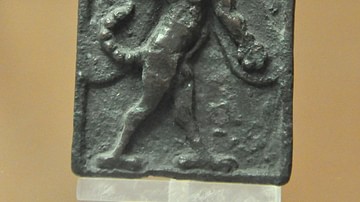
Article
Ghosts in Ancient Mesopotamia
Ghosts in ancient Mesopotamia were understood as a reality of life just as they were in other civilizations of antiquity. Although the cultures of the various Mesopotamian civilizations differed between c. 5000 BCE-651 CE, the belief in ghosts...
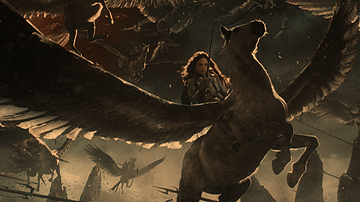
Definition
Valkyrie
A Valkyrie is a figure in Norse mythology depicted as a warrior woman on horseback, a wolf or boar, and armed with a spear, who decides the fate of warriors in battle and carries the dead to Odin’s Valhalla. Valkyrie means "chooser of the...
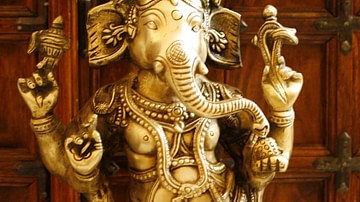
Definition
Ganesha
Ganesha (also Ganesa or Ganapati) is one of the most important gods in Hinduism. Ganesha is easily recognized with his elephant head and human body, representing the soul (atman) and the physical (maya). Ganesha is the patron of writers...
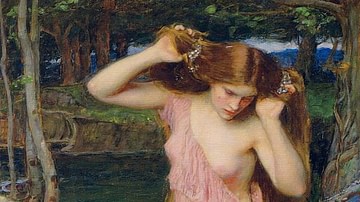
Definition
Lamia
Lamia is a female or a hermaphroditic demon found in Greek mythology who devoured children and seduced men. She appears in literature as early as the 6th century BCE and is said to be fearsome to look upon with an ugly face, the upper body...
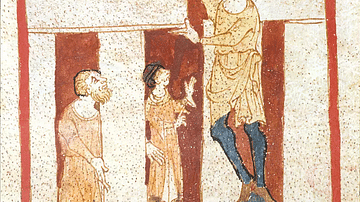
Definition
Merlin
Merlin (also known as Myrddin, Merlinus) is the great wizard of the Arthurian Legends best known from Sir Thomas Malory's Le Morte D'Arthur (1469 CE). The character was created by Geoffrey of Monmouth in his History of the Kings of Britain...
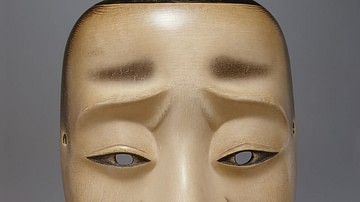
Definition
Noh Theatre
Noh (Nō) theatre is a Japanese performance art which became especially popular from the 14th century CE and which is still performed today. Noh actors, who were always male in the medieval period, famously move and make gestures in a very...

Definition
Surya
Surya (also known as Aditya) is the Hindu god of the Sun. He is considered the creator of the universe and the source of all life. He is the supreme soul who brings light and warmth to the world. Each day he travels across the sky in his...
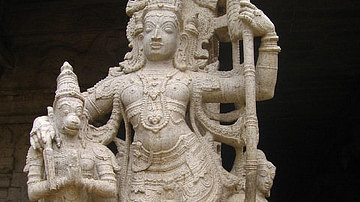
Definition
Rama - Seventh Avatar of Vishnu
Rama (or Ramacandra) is the seventh avatar of the Hindu god Vishnu. His adventures include the slaying of the demon king Ravana which is recounted in the Vana Parva of the Mahabharata and in the Ramayana, the oldest Sanskrit epic, written...
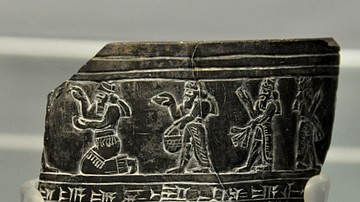
Definition
Nergal
Nergal (also known as Erra and Irra) is the Mesopotamian god of death, war, and destruction. He began as a regional, probably agricultural, god of the Babylonian city of Kutha in the Early Dynastic Period I (c. 2900-2800 BCE). As his temple...
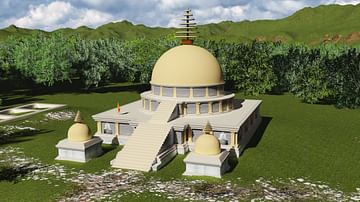
Definition
Taxila
When it comes to ancient history, Pakistan contains its fair share of treasures, one of the prominent of these being the ancient metropolis of Taxila. It is a city of the Gandharan civilization, sometimes known as one of its capitals, whose...